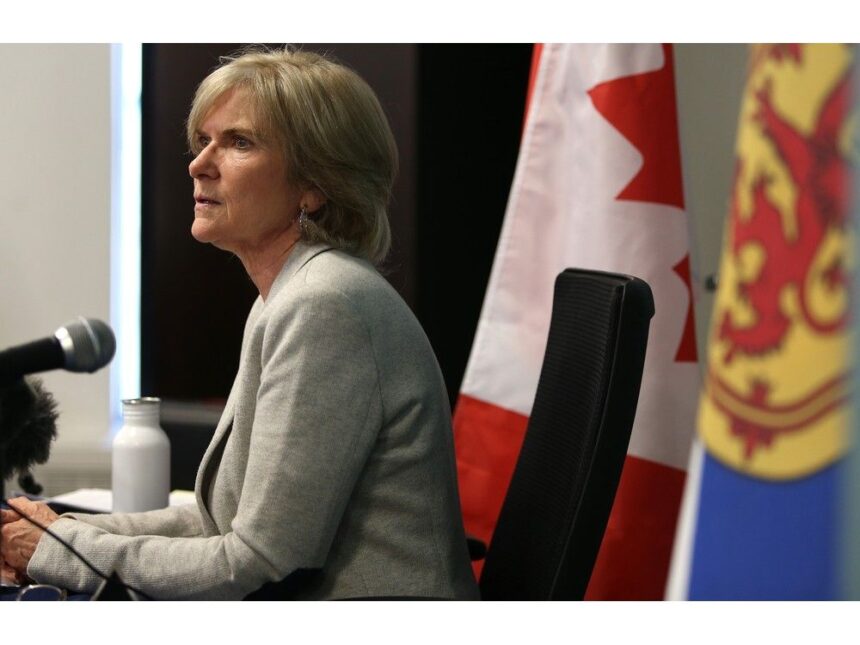It is proper to examine how money is spentAuthor of the article: Bill Black • For The Chronicle HeraldPublished Apr 12, 2025 • Last updated 18 hours ago • 4 minute readThe Nova Scotia government has failed to hold the province’s 10 universities accountable for $2.5 billion in public funding received over the past five years, the province’s auditor general, Kim Adair, said in March. Photo by Tim Krochak /The Chronicle HeraldNova Scotia’s universities and community colleges are wonderful assets. They provide diverse learning opportunities to Nova Scotian students and many from other provinces and countries. We import far more students than we export.The institutions equip those students with the knowledge and skills needed for many trades and professions, most notably in health care and construction. Other students invent new technologies or start new businesses.THIS CONTENT IS RESERVED FOR SUBSCRIBERS ONLY.Subscribe now to access this story and more:Unlimited access to the website and appExclusive access to premium content, newsletters and podcastsFull access to the e-Edition app, an electronic replica of the print edition that you can share, download and comment onEnjoy insights and behind-the-scenes analysis from our award-winning journalistsSupport local journalists and the next generation of journalistsSUBSCRIBE TO UNLOCK MORE ARTICLES.Subscribe or sign in to your account to continue your reading experience.Unlimited access to the website and appExclusive access to premium content, newsletters and podcastsFull access to the e-Edition app, an electronic replica of the print edition that you can share, download and comment onEnjoy insights and behind-the-scenes analysis from our award-winning journalistsSupport local journalists and the next generation of journalistsRegister to unlock more articles.Create an account or sign in to continue your reading experience.Access additional stories every monthShare your thoughts and join the conversation in our commenting communityGet email updates from your favourite authorsSign In or Create an AccountorArticle contentThe province is deeply invested in the viability of each university. It needs to monitor their financial strength and effectiveness as creators and disseminators of knowledge.The universities are not owned by the province. Most of their revenue comes from the students but the provincial operating grant pays for 32 per cent of operating costs, amounting to $1.9 billion over the least five years.How the amounts are calculated each year has been determined by a process that has been haphazard and frequently arbitrary. For universities other than Dalhousie, the annual increase in grant was a meagre one per cent from 2019 to 2024. There was no rationale for being so much less than inflation.Between April 2019 and March 2024, the department invested $276.9 million in health education grants to universities. The scathing auditor general’s report released March 4 observes that the Health Department has no plan to determine whether the intended outcomes have been achieved.Article contentIt has not had benchmarks to assess the financial health and sustainability of universities, notwithstanding the tools provided by the 2015 Universities and Accountability Sustainability Act.This is context for considering Bill 12, which the legislature passed in late March. It grants the authority to intervene in universities in several ways.The minister can:require a business plan that, among other things, “identifies a strategic connection between the social and economic priorities of the Government and the university’s funding decisions”require the university to initiate a revitalization planning process if the university is struggling to pay the bills or deliver on its mandatewithhold payments to the university if a satisfactory revitalization plan is not forthcomingand appoint up to half the members of the board.This may appear to be reasonable, but there are many concerns.The key message of the auditor general was that “the department is not effectively funding, monitoring, or holding universities accountable for public funds; new 2024-25 bilateral agreements, if followed, should improve accountability.”Article contentGiven the weak oversight of universities to date, it is questionable whether the department has the competence and capacity to fulfill the much broader responsibility to implement the bill. In particular, there has been weak oversight of the investments to increase capacity in health programs.Many of the volunteer boards have too many members, but all of them include distinguished members from their communities. If the board starts to feel that it is an advisory committee to the department, it will be difficult to attract members with good governance experience and skills.If a university fails to provide a satisfactory revitalization plan “the minister may declare the university ineligible to receive a grant . . . and may withhold or refuse to make payment.” At that point, the board and the president should resign. The minister will need an alternative governance capability, comparable to what happens to corporations that can’t pay their lenders.Article contentIt will be difficult to attract and retain distinguished academics if the government is perceived to be too intrusive.Recommended from Editorial BILL BLACK: The coming federal election is likely to be close BILL BLACK: Canadian political preferences have changed abruptly BILL BLACK: Liberals manufacture mildly brighter prospects The province wants their investments in post-secondary education to result in graduates getting good jobs and contributing to the economy.The Nova Scotia Community College (NSCC) maintains a keen interest in the vocational outcomes of their students, tracking their employment success and whether they are still in Nova Scotia.Some university programs lead toward capability in health professions, law, engineering, architecture, computer science and accounting, among others. They also identify future possibilities for students working toward arts degrees.Universities are much less informed on the outcomes of their graduates. Surveys done by the Maritime Provinces Higher Education Commission provide only high-level indications of student success, with no distinction by program of study. They need to be more interested in the vocational outcomes of their graduates.Bill 12 creates several tools by which the minister can intervene in the governance of the province’s universities. It is right to insist on examining how the universities are spending their money. They are now required to report quarterly.The federal government’s mismanagement of international students has triggered a deep decline in applications, putting a dent in budgets.The negotiations concerning government support and tuition hikes are to conclude by the end of next week. It is going to be a very difficult process for both sides.Article content
BILL BLACK: Nova Scotia facing tough choices for universities











